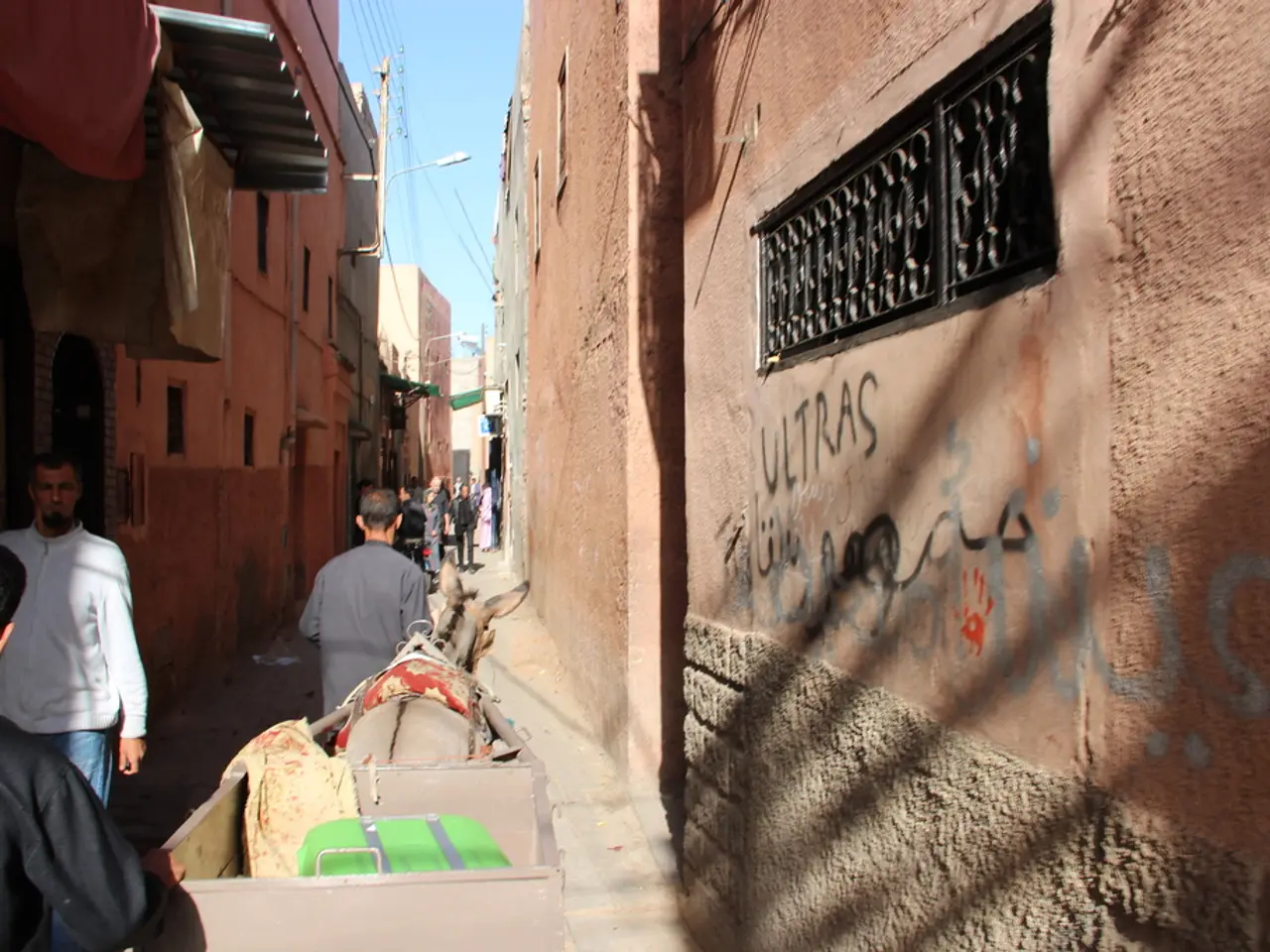Three thieves in Iran have been subjected to physical punishment, losing their hands for their illegal actions.
In the heart of northwestern Iran, the justice department in Urmia is embroiled in a controversial policy, known as the "Draconian Punishment." This harsh and severe policy, which contravenes international human rights obligations, has recently resulted in three individuals undergoing hand amputation.
The individuals in question were accused of theft and allegedly refused to cooperate with the justice system or return the stolen goods, which were several kilos of gold and jewelry. The stolen goods were not recovered, and the accused were met with the drastic measure of hand amputation, a punishment that is part of Iran's Islamic penal code.
The amputation procedure is typically carried out by forensic doctors. However, this practice has been widely condemned both within Iran and internationally as inhumane. The United Nations, human rights organizations, and the global community view these punishments as irreversible violations of human dignity, cruel, and inhumane.
Amnesty International and the United Nations High Commissioner for Human Rights have issued urgent appeals and statements condemning these punishments, describing them as “vicious spectacles” and calling for their abolition. Reports also highlight that the execution of such punishments often follows unfair trials and involves torture to extract confessions, further amplifying international concern.
Despite this global stance, Iran continues to implement corporal punishments such as amputation and stoning under its Islamic Penal Code and Sharia law. Iran refuses to ratify the UN Convention against Torture and rejects international oversight on these issues.
The implementation of the "Draconian Punishment" policy or action is raising concerns about human rights and fairness. The policy is facing criticism from various groups and individuals, who call for reform and abolition. However, the exact details of the policy's implementation and its consequences remain unclear.
As the world watches, the situation in Urmia serves as a stark reminder of the ongoing human rights issues in Iran and the urgent need for reform. The international community continues to call for the abolition of such draconian punishments, advocating for a justice system that upholds human dignity and respects the rule of law.
[1] Amnesty International, "Iran: Amputations, stonings, and other cruel punishments continue under the Islamic Penal Code," 2025. [2] United Nations High Commissioner for Human Rights, "Report on the situation of human rights in the Islamic Republic of Iran," 2025. [3] Human Rights Watch, "Iran: Amputations, stonings, and other cruel punishments continue under the Islamic Penal Code," 2025. [4] BBC News, "Iran: Three men have fingers amputated for theft," 2025. [5] The Guardian, "Iran: Three men have fingers amputated for theft," 2025.
The International community is raising concerns over Iran's implementation of the Draconian Punishment policy, as demonstrated by the recent hand amputations in Urmia, which are regarded as inhumane and a violation of human dignity. This policy, part of Iran's Islamic Penal Code, is facing intense criticism from Amnesty International, the United Nations High Commissioner for Human Rights, and Human Rights Watch, who call for its abolition.






